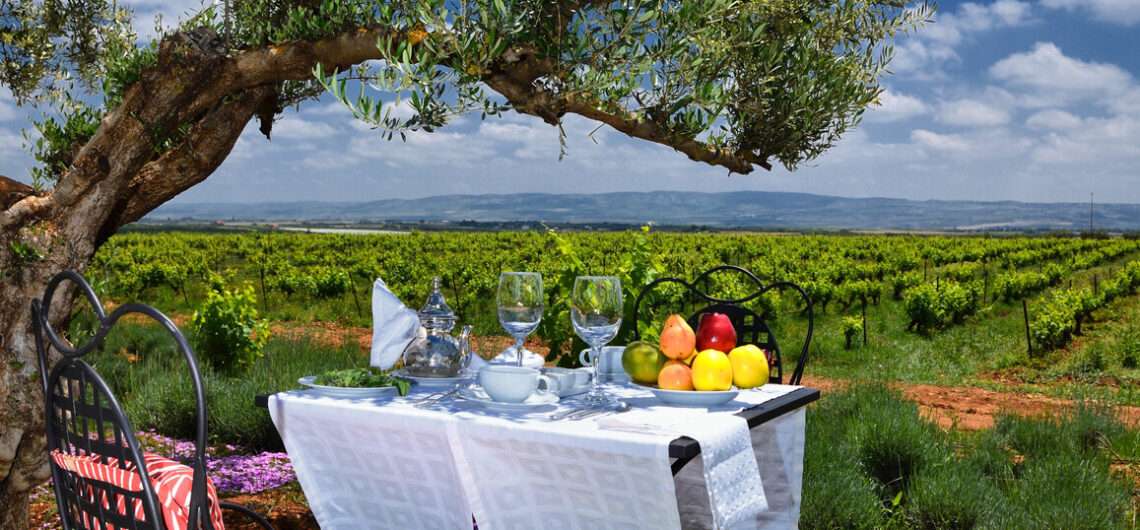Yennayer is the New Year’s Day of the agrarian calendar used since antiquity by the Berbers throughout North Africa. They celebrate it from January 12 to 14 of each year, as the start of the Julian calendar. It is shifted of 13 days compared to the Gregorian calendar, and starts on the 14th of each year. Probably as a result of an error of the first cultural associations that advocated the return to this traditional holiday threatened with extinction, the opinion that the traditional date is January 12 is widespread, although the exact date is January 14.
The viticulture in Morocco and the planting of the first vineyards date back to the Phoenicians and the Roman colonisation. In ancient times, the major centre of wine production was concentrated around Volubilis. This region is part of the present-day city of Meknes.
Morocco remains one of the last lands wild vines on earth. As early as antiquity, Pausanias the Periegete noted that the inhabitants of Lixus, a city founded by the Phoenicians on the right bank of the Loukkos wadi, consumed the fruit. Louis Levadoux indicates that ‘The Berbers do not neglect this supplement.’ Indeed, when autumn comes, the people of Guergour go high up into the forests of the Atlas. They pick the grapes from the trees to eat them fresh or dry them on racks.
Click here, to book a place with us for a winery tasting tour.



